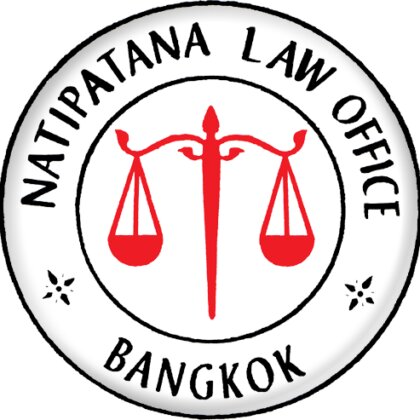Best Real Estate Due Diligence Lawyers in Phuket
Share your needs with us, get contacted by law firms.
Free. Takes 2 min.
Free Guide to Hiring a Real Estate Lawyer
List of the best lawyers in Phuket, Thailand
Legal guides written by SIAM LEGAL INTERNATIONAL:
- Defamation Laws in Thailand: Criminal Charges and Civil Suits
- The State of Thailand’s Long-Term Resident (LTR) Visa Program in 2025
- The Penalties Of Not Filing Your Income Tax Return As A Foreigner In Thailand
Thailand Real Estate Due Diligence Legal Questions answered by Lawyers
Browse our 2 legal questions about Real Estate Due Diligence in Thailand and read the lawyer answers, or ask your own questions for free.
- Selling my property in Krabi
- I'm the owner of a condominium in Krabi and have a ready foreign buyer. How can I get assistance to draft a sales contract between me and the buyer for a full sale without a property agent?
-
Lawyer answer by SB Law Asia
Our firm are experts in Thai property law and would be very pleased to assist you in this matter. Please feel free to contact us directly. The initial consultation is free.
Read full answer - Estate dealer Will not pay back.
- My Thai wife has paid money to an estate dealer for a land plot, the land should have been ready for overtaking, but due to different reasons it is not ready for overtaking, according to the contract, my wife should be able to get her money back, but the estate... Read more →
-
Lawyer answer by GPS Legal
GPS Legal has extensive experience in Real Estate Law, Contract Law, and dispute resolution in Thailand. If you choose to hire an attorney, please contact us directly
Read full answer
Thailand Real Estate Due Diligence Legal Articles
Browse our 9 legal articles about Real Estate Due Diligence in Thailand written by expert lawyers.
- 5 Common Legal Pitfalls in Thai Real Estate and How to Avoid Them
- Nestled within the paradisiacal landscapes and burgeoning economic dynamism of Thailand lies a high-stakes real estate market rife with both rapturous potential and formidable legal complexities. This idyllic Southeast Asian terrain has emerged as a globally-coveted destination for luxury residential developments, commercial property investments, and ambitious real estate endeavors spanning... Read more →
- How Foreigners Can Own Property in Thailand
- For foreigners considering property ownership in Thailand, understanding the process and relevant laws is crucial. These laws are not typically compared to the property ownership laws of other countries, as the Kingdom strictly regulates which foreigners can own property, the circumstances under which they can do so, and the types... Read more →
- Tax Implications of Buying Property in Thailand: A Comprehensive Guide
- You might be an expat in Thailand hunting for your next property investment, and interested in buying a condo in one of the world’s fastest-moving cities, Bangkok; or perhaps you’re an investor who is also in awe of the stunning and ever-popular vacation island of Phuket, or a retiree considering... Read more →
About Real Estate Due Diligence Law in Phuket, Thailand
Real Estate Due Diligence in Phuket, Thailand, is a critical process for anyone involved in the purchase, lease, or management of property. Due diligence involves investigating and evaluating the property to ensure that it complies with legal requirements and that there are no hidden liabilities. It includes reviewing property records, verifying title deeds, understanding zoning regulations, and assessing potential legal risks. Conducting thorough due diligence is essential to avoid future legal issues and financial losses.
Why You May Need a Lawyer
There are several scenarios where individuals or businesses may require legal assistance with Real Estate Due Diligence in Phuket:
- Foreign Purchasers: Foreigners face restrictions under Thai law regarding land ownership. An experienced lawyer can help navigate these rules and consider alternative arrangements, such as leasehold agreements or setting up a Thai company.
- Complex Transactions: When purchasing large developments or commercial properties, legal expertise can help in assessing all necessary permits and contract obligations.
- Dispute Resolution: A lawyer can provide essential guidance in case of disputes over property boundaries, ownership, or fraud.
- Understanding Local Regulations: Legal professionals can help interpret local zoning laws and environmental regulations that may affect property use.
Local Laws Overview
Real Estate Due Diligence in Phuket, Thailand, is influenced by several key legal elements specific to the region:
- Title Verification: Ensuring the legitimacy and transferability of a property’s title is crucial. This involves checking the property’s history and any encumbrances.
- Condominium Act: Foreigners can own condominium units in Thailand, but their ownership is subject to certain restrictions outlined in the Condominium Act.
- Land Code Act: This act governs land use and ownership, emphasizing the importance of understanding land classifications and zoning regulations before purchase.
- Environmental Regulations: Properties near coastal areas and beaches may be subject to specific environmental protection regulations prohibiting certain types of development.
Frequently Asked Questions
What is a Title Deed in Thailand?
A Title Deed is a legal document representing the ownership of a property. In Thailand, Chanote (Nor Sor 4) is the most reliable form and indicates unequivocal ownership.
Can foreigners own land in Phuket?
Foreigners cannot own land outright. However, they may lease land for up to 30 years, with options to extend, or own buildings separately from the land.
How does the Condominium Act benefit foreign buyers?
The Condominium Act allows foreigners to own up to 49% of the total unit space in a condominium, offering a secure way to invest in Thai real estate.
What are the risks of not doing due diligence?
Failure to conduct thorough due diligence can lead to legal disputes, financial loss, or even forfeiture of the property if it is found to violate zoning laws or lacks the proper ownership documentation.
Is it necessary to check building permits?
Yes, it’s crucial to ensure that all necessary building permits have been obtained and are valid to avoid any future demolition orders or legal challenges.
How can I confirm the zoning of a property?
Your lawyer can help verify with the local land department to ensure that the property is zoned for your intended use, be it residential, commercial, or otherwise.
What should I know about property taxes?
Property taxes in Thailand include a transfer fee, withholding tax, and specific business tax, depending on the type and duration of ownership.
Is environmental due diligence necessary?
Yes, especially for areas near beaches or marine parks, to ensure compliance with local environmental regulations and avoid costly penalties.
What is the Land Code Act?
The Land Code Act regulates land use and ownership in Thailand, and understanding its provisions is essential for anyone dealing with real estate transactions.
What role does a lawyer play in due diligence?
A lawyer ensures that all legal aspects are covered, assesses risks, verifies documentation, and represents your interests in any legal matters.
Additional Resources
For additional information and support related to real estate due diligence in Phuket, consider the following resources:
- Land Department Thailand: Official government body for managing land registration and title verification.
- Thai Board of Investment (BOI): Useful for understanding investment incentives and regulations for foreigners.
- Local Real Estate Agencies: Often provide listings and general advice on local market conditions.
Next Steps
If you require legal assistance with Real Estate Due Diligence in Phuket, Thailand, here are your next steps:
- Contact a Lawyer: Seek a legal professional specializing in Thai real estate who is accredited and experienced in dealing with foreigners.
- Prepare Documents: Gather all relevant property documents, including any existing contracts, title deeds, and personal identification.
- Conduct Preliminary Research: Having a basic understanding of the property and the surrounding area can help you ask informed questions and guide your discussions with your lawyer.
Taking these steps will ensure that you are well-prepared and informed, significantly reducing the risks associated with real estate transactions in Phuket, Thailand.
Lawzana helps you find the best lawyers and law firms in Phuket through a curated and pre-screened list of qualified legal professionals. Our platform offers rankings and detailed profiles of attorneys and law firms, allowing you to compare based on practice areas, including Real Estate Due Diligence, experience, and client feedback.
Each profile includes a description of the firm's areas of practice, client reviews, team members and partners, year of establishment, spoken languages, office locations, contact information, social media presence, and any published articles or resources. Most firms on our platform speak English and are experienced in both local and international legal matters.
Get a quote from top-rated law firms in Phuket, Thailand — quickly, securely, and without unnecessary hassle.
Disclaimer:
The information provided on this page is for general informational purposes only and does not constitute legal advice. While we strive to ensure the accuracy and relevance of the content, legal information may change over time, and interpretations of the law can vary. You should always consult with a qualified legal professional for advice specific to your situation.
We disclaim all liability for actions taken or not taken based on the content of this page. If you believe any information is incorrect or outdated, please contact us, and we will review and update it where appropriate.















